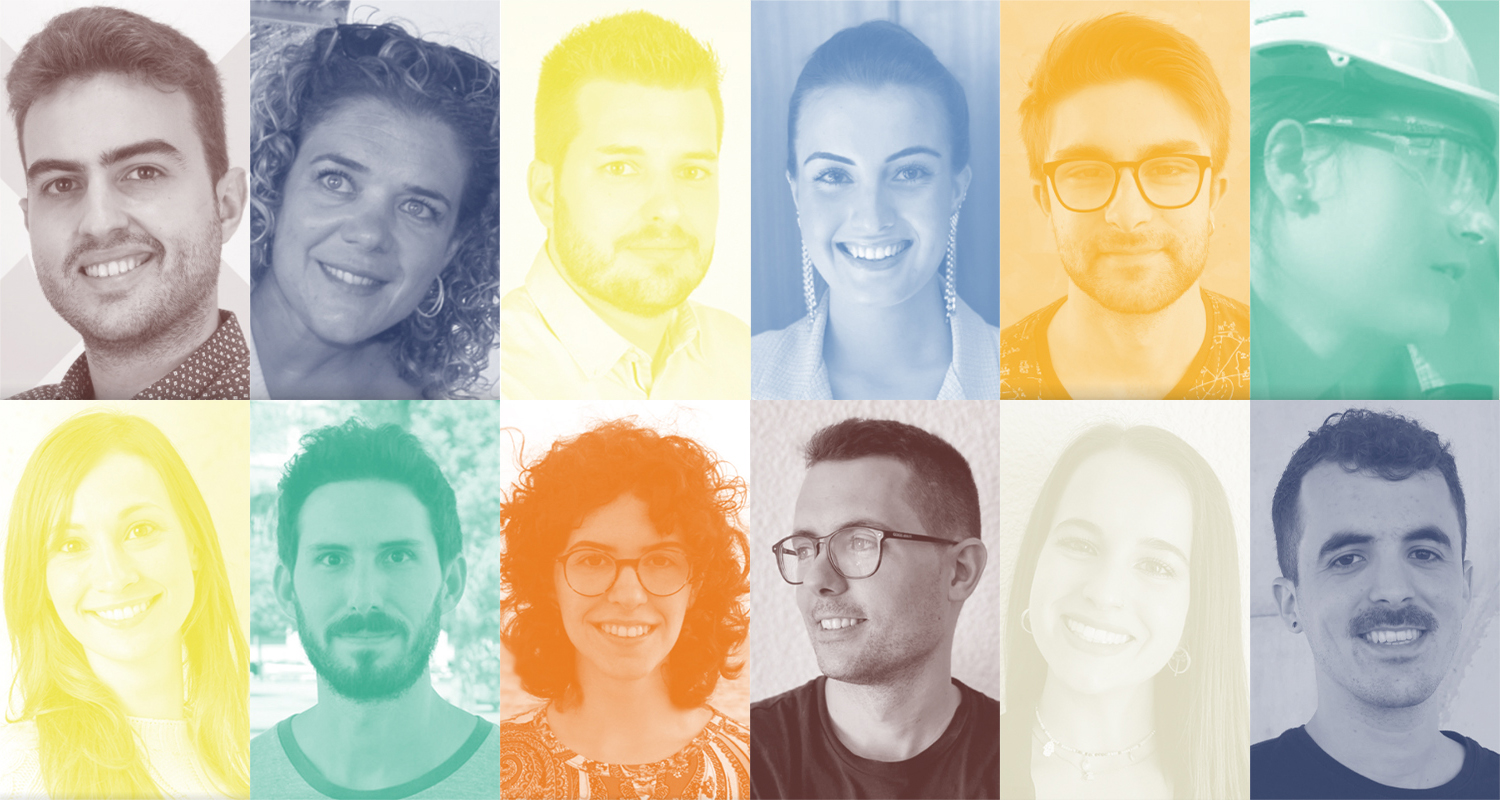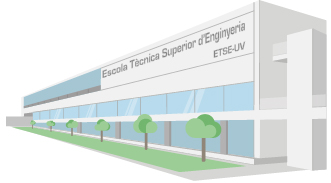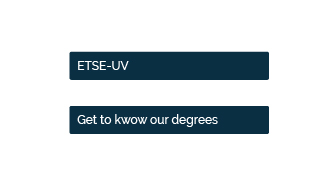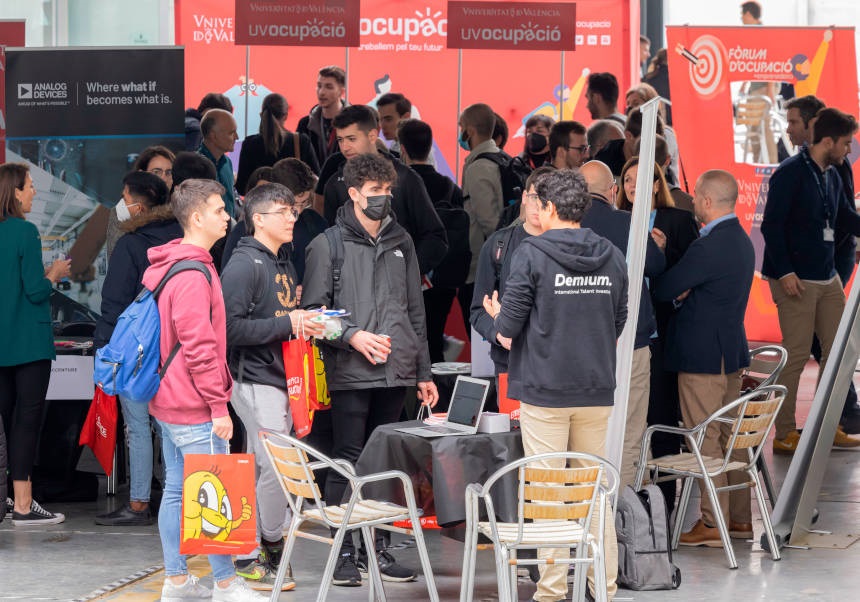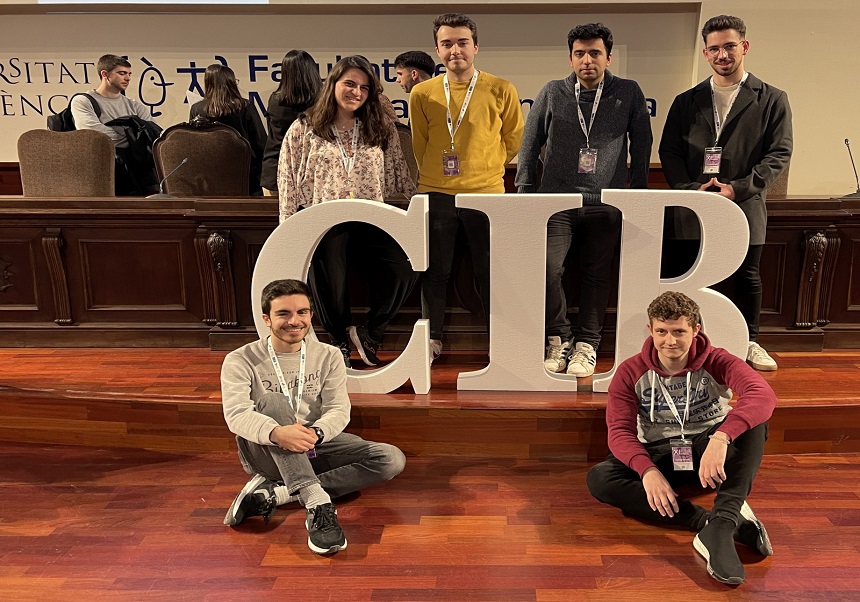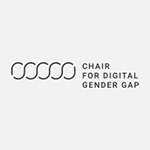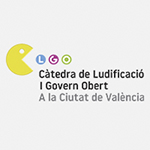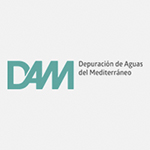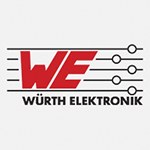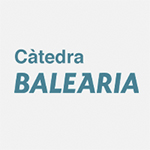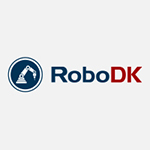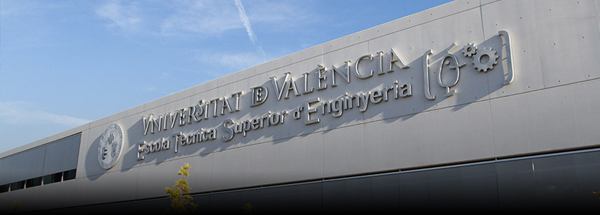


- High rate of employment.
- Offer of Master’s Degrees with high demand in the labour market.
- Personalised treatment and small groups in classes and labs.
- Agreements with companies and institutions in the sector.

- 5800m2 with several facilities and a co-working room.
- +40 laboratories 3D visionary, F1 simulator, motion capture room, green screen, anechoic room, chemical process laboratories, state-of-the-art GPU...
- Partnerships: IEEE Students + Data Lab + IEEE Women in Engineering

- We are leaders in engineering and data science training.
- High level of specialisation.
-
Master's Degree in BioinformaticsThe discipline of bioinformatics emerged as a response to the need of analysing biological data of such volume and complexity that requires the use of computer tools. The application of genomics in different areas of knowledge such as medicine, biology, agri-food, pharmacy, etc. generates the need of training of new experts capable of facing the new challenges that the future of these disciplines create. The reduction of the price for these methodologies is very close to its conclusion not only in research, where they are already put in use, but in the own clinical or professional practise. This means that not only the life sciences researchers are going to need to be trained in bioinformatics, but that the same clinical practise or the companies based on biotechnology or biomedicine will demand in few years a good number of specialists in genomic data analysis. Furthermore, from the computer sciences point of view, a new area is open, in which the development of bioinformatics software will become a crucial aspect. As bioinformatics applications on one hand demand greater efficiency due to the increasing volumes of data, and on another, its use goes beyond the area of research and professionalises when it gets to a clinic or pharmaceutical and biotechnological companies, its development needs to be carried out by professionals. Therefore, it must be people with an appropiate computer training, and not "amateur" programmers, who should be responding to these demands of efficient bioinformatic software and with proper quality standars.
-
Master's Degree in BioinformaticsRecommended admission profile
The recommended applicant profile is a student that holds a degree in Computer Engineering, Medicine, Pharmacy, Biology, Biotechnology, Biochemistry and Biomedical Sciences, or in other degrees, engineerings, licenciaturas and master's degrees with related training to the previous degrees.
-
Master's Degree in BioinformaticsTraining complements
Will only be accepted those students holding a degree in Computer Engineering, Medicine, Pharmacy, Biology, Biotechnology, Biochemistry and Biomedical Sciences, or in other degrees, engineerings, licenciaturas and Master's degrees with related training to the previous degrees.
The Academic Coordinating Committee of the Master's Degree will establish the training complements that students must take in each case in order to appropiately face the common subjects of the Master's. Said complements can have a maximum workload of 30 ECTS and will be fixed according to the profile and academic record of the candidate.
The training complements, which make up the Master's are:
Subject
Computers and operative systems 6 ECTS
Programming 9 ETCS
Data structures and databases 9 ECTS
Medicine and clinical experimentation 6 ECTS
Evolution 6 ECTS
Biochemistry and molecular biology 9 ECTS
Genetics 9 ECTS
To illustrate it, although it will depend on the profile of the candidate, students must take:
• Students holding a degree in Computer Engineering or similar
- Medicine and clinical experimentation
- Evolution
- Biochemistry and molecular biology
- Genetics
• Students holding a degree in Medicine or similar
- Computers and operative systems
- Data structures and databases
- Programming
- Evolution
• Students holding a degree in Biology, Biotechnology, and biomedical sciences or similar
- Compyters and operative systems
- Programming
- Data structures and databases
- Medicine and clinical experimentation -
Master's Degree in BioinformaticsAdmission criteria
The selection criteria are as follows:
• Academic record (40-50%) calculated according to the approved regulation of valoration of academic records of the UV.
• Appropiate training of the student following the profile recommendations (30-40%).
• Curriculum Vitae handed out (with documentary evidence of the claimed merits) (10-20%). In case of it being convenient, a personal interview on the claimed merits in the curriculum will be carried out. -
Master's Degree in BioinformaticsCredit: 90Courses: 2Classes: face-to-facePlaces: 24Language: SpanishPrize: 35,34 €/CreditUniversities: University of ValenciaSpecific website:www.uv.es/bioinforSchool of EngineeringBurjassot/Paterna CampusAvinguda de la Universitat s/n46100 Burjassot (Valencia)+34 963 543 211Geolocation
-
Master’s Degree in Data ScienceTo determine the importance of this master’s degree we have to go to the competences that data scientists have to face; they have to be able of: a) Collecting and restoring information optimally. This information can be of any type (numeric, text, images, videos,...). It also can be affected by the 5 V of the known as Big Data (velocity, variety, volume, value and veracity). b) Visualising this information in order to extract behaviour patterns in the data. c) Stablishing repetitive groupings/patterns and behaviour rules in the data. d) Determining prediction models to stablish future behaviours. All these characteristics define a data scientist, therefore by analysing them we observe that it is needed a multidisciplinary training that comprises different knowledge areas. It has to be noted that these professionals work in all the industry areas, from the pharmaceutical industry until the videogames industry, going through consultancy firms, banks, firms based on Internet, etc. Nowadays there is an important demand of data scientists under the umbrella of what is known as “business intelligence”, “customer experience”, “customer experience”, “business analytics” and “big data”. These four terms comprise a great part of the demand for data analysts oriented to business applications. Given this demand in this master’s degree it is considered towards these topics so that the graduated can have a quick labour incorporation. This orientation will be always carried out from the point of view of an eminently practical and of direct application of the advanced data analysis methods to this kind of problems training.
-
Master’s Degree in Data ScienceRecommended admission profile
The recommended entry profile to take the University Master’s Degree in Data Science of the Universitat de València is that of graduates with basic skills in mathematics (algebra and calculus) and statistics (probability) both at a theoretical level and at a practical one in the use of computer tools to solve practical cases. The most adequate profiles correspond to the following graduates (at a Degree or Llicenciatura level):
·Informatics Engineering, Electronic Engineering, Telecommunications Engineering or Engineering in any of its specialties.
·Mathematics, Physics.
·Economy, Business Management and Administration.Regarding personal aptitudes, we recommend that students applying for this master’s degree have an interest on the treatment of information at different levels: collection and storage, visualization, analysis and development of prediction models to establish future behaviours. The ability to identify prblems on data analysis in real applications (industrial areas, business, management, administration, health, etc.), and in other personal skills such as creativity, an innovative ability and interest for an ongoing learning process which is highly recommended for the training of a data scientist with a professional projection in fields with a high dynamism.
-
Master’s Degree in Data ScienceTraining complements
If in the admission process and in the view of the provided documentation by the applicant, the Academic Committee of the Master’s Degree values that the competences in mathematics and statistics, in programming tools as well as in programming foundations and data bases are not sufficient, then students should take the bridging courses that are described below. Specifically they should take in the first four-month period up to 12 credits of the following subjects of the curriculum belonging to some of the Degrees in Engineering of the Universitat de València, which are close to the academic environment of the Master’s Degree: Degree in Informatics Engineering (GII), Degree in Multimedia Engineering (GIM), Degree in Telematics Engineering (GI), Degree in Chemical Engineering (GIQ), Degree in Electronic Engineering for Telecommunications (GIET) or Degree in Industrial Electronic Engineering (GIEI). The subjects are taken in the first term of the first year and they are 6-ETCS subjects.
-Mathematics I
-Informatics
-
Master’s Degree in Data ScienceAdmission criteria
It is required that the students that enter this official degree have taken undergraduate degree or higher studies (graduated, engineer or llicenciatura) preferably in Maths, Physics, Engineering (Informatics, Electronics, Telecommunications and Industrial Engineering), Economy and Business Management and Administration.
The Academic Committee of the Master’s Degree will value, in accordance with the admission process we will describe next, that students who apply for the admission have acquired enough competence in mathematics and statistics, have used in some subject of their training programming tools (such as R, C, Matlab, Python or similar) and who know the basics of the foundations of programming and data bases.
If those knowledges were insufficient, students should take the complementary training established in the 4.6 section of this memory.For students from non-Spanish speaking countries, a Spanish level B2 certification is required (through a Diploma of Spanish as a Foreign Language at a B2 level, or an oral and written test).The admission applications will be valued by the Committee for Academic Coordination of the Master’s Degree in accordance to the following criteria: suitability to the profile (50%), the academic record (40%), professional experience related to data analysis (years of professional experience, personal interview by the Academic Committee, letters of recommendation of the jobs exercised, etc. (5%) and other academic and training merits such as additional degree or postgraduate degree qualifications related to the field of knowledge of the Master’s Degree, community languages with B1 or higher level, attendance to courses and semiars, etc. (5%).
-
Master’s Degree in Data ScienceCredit: 90Courses: 2Classes: face-to-facePlaces: 25Language: SpanishPrize: 35,34 €/CreditUniversities: University of ValènciaSpecific website:www.uv.es/mcdSchool of EngineeringBurjassot/Paterna CampusAvinguda de la Universitat s/n46100 Burjassot (Valencia)+34 963 543 211Geolocation
-
Master's Degree in Environmental Engineering
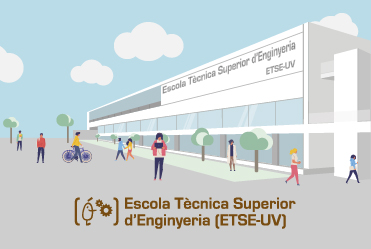 The increasing sensitivity in the face of environmental degradation and the need to mitigate the impacts of pollution on this, the intervention of new professionals in relation to the environmental engineering is needed, in order to achieve a balance between the development of our society, the industrial competitiveness, and the sustainable and respectful perspective with the environment. The need for response to these new challenges has consolidated worldwide the studies in this field, as proposed in this Master’s. In this sense, the study and understanding of the impacts created by the human activities justify its research and professional orientation, since it is only from an advanced knowledge programme that trains specialists from where you can face these matters, either through the development, design and technology transfer or the implementation of other kinds of processes.
The increasing sensitivity in the face of environmental degradation and the need to mitigate the impacts of pollution on this, the intervention of new professionals in relation to the environmental engineering is needed, in order to achieve a balance between the development of our society, the industrial competitiveness, and the sustainable and respectful perspective with the environment. The need for response to these new challenges has consolidated worldwide the studies in this field, as proposed in this Master’s. In this sense, the study and understanding of the impacts created by the human activities justify its research and professional orientation, since it is only from an advanced knowledge programme that trains specialists from where you can face these matters, either through the development, design and technology transfer or the implementation of other kinds of processes. -
Master's Degree in Environmental EngineeringRecommended admission profile
The Master’s in Environmental Engineering is preferentially addressed to the following degrees: Undergraduates in Rural and Agro-food Engineering; Forest and Environmental Engineering; Civil Engineering; in Public Work Engineering, in Chemical Engineering and in Industrial Engineering.
Undergraduates in Environmental science ,Chemistry and in Biotechnology.
The degree holders who are exposed below will be also among the recommended profiles: Holders of a Licenciatura in Environmental Science and Chemistry, Industrial Technical Engineers; Public Work Engineers; Agricultural Engineers; Forest and Mining Engineers, Chemical Engineers; Civil Engineers; Industrial Engineers; Agronomists; Mountains and Mining Engineers. -
Master's Degree in Environmental EngineeringAdmission criteria
Three basic criteria are applied in the evaluation of applicants:
- Degree from which admission is requested, i.e. affinity of degree with recommended profile. (40-50%)
- Academic records and average mark (35-40)
- Curriculum Vitae (10-15%)
-
Master's Degree in Environmental EngineeringCredit: 90Courses: 2Classes: face-to-facePlaces: 20Language: SpanishPrize: 35,34 €/CreditUniversities: University of Valencia and Technical UniversitySpecific website:www.uv.es/masteriaSchool of EngineeringBurjassot/Paterna CampusAvinguda de la Universitat s/n46100 Burjassot (Valencia)+34 963 543 211Geolocation
-
Master's Degree in Electronic EngineeringThis programme offers advanced education on Information and Communication Technologies and on electronic engineering technologies connected to the industrial world. Seeking to provide specialised knowledge for the design of integrated circuits, electronic and photonic devices, energy conversion, communication systems and services, etc., the programme’s professional interest lies in its adequacy to the current job market and the need for technology designers, developers and managers of electronic systems. The masters is taught at the School of Engineering (ETSE) of Valencia University, which is located next to the Institutes of the Science Park and the Company Incubator of the Burjasot-Paterna Campus and near Valencia’s Technology Park, these three areas accounting for the greatest demand for highly qualified electronic engineering professionals in the Region of Valencia. In addition to its professional side, the programme has a focus on research, for those students willing to further their education with the Electronic Engineering PhD offered by the University of Valencia.
-
Master's Degree in Electronic EngineeringRecommended admission profile
Graduates who have studied electronics in their undergraduate degree (e.g. Telecommunications Electronic Engineering or Industrial Electronic Engineering).
Students who hold an undergraduate degree in Engineering or a degree with sufficient electronics content. Former degrees – now extinct – of the Spanish university system include:
Industrial and Telecommunications Engineering
Mechanical, Electrical, Automation and Industrial Electronics Engineering
Physics
Computer Engineering
Telecommunications Engineering
In any case, applicants must have fundamental knowledge of circuit and linear systems analysis, analogue electronics and digital electronics.
-
Master's Degree in Electronic EngineeringTraining complements
The Master’s Academic Committee will determine the levelling modules that each student must take, up to a maximum of 12 ECTS credits. These modules will not be counted towards the number of credits required for the degree.
The Master’s Academic Committee will determine the levelling modules that each student must take, up to a maximum of 12 ECTS credits. These modules will not be counted towards the number of credits required for the degree.
Students who have not completed courses with basic knowledge in circuit analysis, linear systems, analogue electronics or digital electronics are required to take up to 12 ECTS credits from the following courses offered by the School of Engineering:Knowledge to be acquired Subjects that may be taken Degree/Academic year/Semester Analysis of linear circuits and systems Theory of electrical networks, Electronic technology and Electronic circuits GIEI/1/2 GIEI/2/2 GIEIT/1/2 Analogue electronics Analogue electronic systems Analogue electronics I
Analogue electronics II and Electronic instrumentation and equipmentGIEI/3/1 GIET/2/2 GIET/3/1 GIET/3/2 Digital electronics Digital electronic systems, Digital electronic systems I, Digital electronic systems II, Telecommunication electronic systems and Digital signal processing
GIEI/3/1 GIET/2/1 GIET/2/2 GIET/3/2 GIET/3/1 GIEI (Degree in Industrial Electronic Engineering)
GIET (Degree in Electronic Engineering for Telecommunications)All courses in the degree programmes are worth 6 ECTS credits. Students will take up to a maximum of 12 ECTS, depending on their prior knowledge.
The number of levelling credits required depends on the student’s level of knowledge, up to a maximum of 12 ECTS. -
Master's Degree in Electronic EngineeringAdmission criteria
In general terms, the Academic Commission shall observe the following criteria in their appraisal of the applications:
- University qualifications (the degree’s affinity with the contents of the masters will be considered).
- Academic records.
-Curriculum vitae (training courses, research merit, and professional experience related to the masters).Candidates must hold an undergraduate degree that grants access to Master’s programmes. In addition, students from countries or educational systems where Spanish is not the primary language must have a B2 level of proficiency in Spanish or Catalan according to the CEFR.
-
Master's Degree in Electronic EngineeringCredit: 60Courses: 1Classes: face-to-facePlaces: 24Language: Spanish and valencianPrize: 35,34 €/CreditUniversities: Universitat de ValènciaSpecific website:www.uv.es/moieSchool of EngineeringBurjassot/Paterna CampusAvinguda de la Universitat s/n46100 Burjassot (Valencia)+34 963 543 211Geolocation
-
Master's Degree in Chemical EngineeringThe interest of the Master’s Degree in Chemical Engineering lies in its academic, scientific and professional interest responding to the current social demand in this field and completes unambiguously the Master’s Degree in Chemical Engineering, allowing students to acquire the competencies that they don’t have acquired in the Undergraduate Degree studies. From the academic point of view the studies on Chemical Engineering are guaranteed by the most prestigious universities of the world, such as the Massachusetts Institute of Technology (MIT), California-Berkeley University, Stratford University, Cambridge University, University of Tokyo, Imperial College of London, Technische Universität München, or ETH of Zurich among other. In order to describe the quality standards and competencies of Chemical Engineering other organisations such as FEANI (Federation Européenne d’Associations Nacionales d’Ingenieurs), EFCE (European Federation of Chemical Engineers), ABET (Accreditation Board for Engineering and Technology), CESARER (Conference of European Schools for Advanced Engineering Education and Research), clearly set out the need of two training levels related to the profession. From a social perspective chemical engineers are highly demanded professionals in all countries with a highly defined curriculum. The Master’ Degree in Chemical Engineering involves in one hand the deepening in the knowledge and competencies acquired in the Undergraduate Degree Studies and in the other hand should lead to a certain level of specialisation, which can have either an academic or professional nature for preparing the doctoral studies. All this confirms the academic, scientific, technical and professional interest of the Master’s Degree.
-
Master's Degree in Chemical EngineeringRecommended admission profile
The recommended applicant’s profile is a graduate in Chemical Engineering who has got the competences described in the third section of the Ministerial Decree that establishes the requirements to verify official university titles linked to the work of industrial technical engineers (Decree CIN/351/2009). He should also have the technical education described in the fifth section of the previously mentioned decree, which refers to the Industrial Chemistry Specific Technology Module. If the applicant was a graduate in any other discipline rather than Chemical Engineering, we will be asked to comply a series of educational requirements to prove that he is competent in the master’s subject. The UV Degree in Chemical Engineering is considered the model degree for accessing the master’s degree. Therefore, we do not recommend students who don’t have training in related scientific/technical disciplines to apply for this master’s degree.
Regarding the language requirements, the applicants are recommended to have a B2 or higher level of English to understand scientific documents. Foreigner students are advised to have a C1 level of Spanish.
In addition, access to the Master's Degree in Chemical Engineering at the Universitat de València is proposed following the recommendations established in the resolution of the Secretariat for Universities regarding the Official Master's Degree linked to the profession of Chemical Engineer (BOE no. 187, section III page 66699 of 4 August 2009, in article 4.2): Entrance requirements to the Master’s Degree:
- Those who have previously acquired the competences stated in section 3 of the Ministerial Decree establishing the requirements for the verification of official university degrees linked to the practice of the profession of Industrial Technical Engineer (Order CIN/351/2009), and whose training is in accordance with that established in section 5 of the aforementioned decree, all of which refers to the module of Specific Technology of Industrial Chemistry, may access the Master's Degree linked to the profession of Chemical Engineer.
- Likewise, access to the Master's Degree will be allowed if the Bachelor's Degree of the applicant covers the competences included in the basic training modules common to the industrial branch of section 5 of the Ministerial Decree, establishing the requirements for the verification of official university degrees linked to the practice of the profession of Industrial Technical Engineer. In this case, the necessary bridging courses must be taken to guarantee the competences stated in the industrial chemistry block of the aforementioned order.
- Those in possession of any other Bachelor's Degree may also be admitted to this Master's Degree without prejudice to the establishment of any additional training that may be deemed necessary.
Holders of other degrees different from those mentioned above will be required to take the necessary bridging courses to meet the competences of the Degree in Chemical Engineering. These competences correspond to the basic ones defined in the Royal Decree 1393/2007 and those established by Order CIN/351/2009, published in the BOE of 20 February 2009, which enable students to practice the profession of Industrial Technical Engineer.
The required complementary training will consist of taking the necessary subjects of the Degree in Chemical Engineering, the number of credits required depending on the applicant's CV. -
Master's Degree in Chemical EngineeringTraining complements
Holders of degrees different to the ones mentioned above will be required to take the bridging courses needed for meeting the competencies of the degree in Chemical Engineering.
-
Master's Degree in Chemical EngineeringAdmission criteria
If the number of applications is higher than the number of places offered, there will be a selection carried out by Academic Coordinating Committee.
The admission criteria will be the following: Adaptation of the profile (50-70%), Academic Record (20-40%), Professional Experience (5-10%) and other academic and training merits: other degrees or postgraduate studies, community languages level B-1 or superior, seminars, etc (5-10%).
-
Master's Degree in Chemical EngineeringCredit: 90Courses: 2Classes: face-to-facePlaces: 30Language: SpanishPrize: 17,34 €/CreditUniversities: Universitat de ValènciaSpecific website:www.uv.es/miquiSchool of EngineeringBurjassot/Paterna CampusAvinguda de la Universitat s/n46100 Burjassot (Valencia)+34 963 543 211Geolocation
-
Master's Degree in Web Technology, Cloud Computing and Mobile Applications
 The importance of Information and Communications Technology (ICT), and particularly, of Computing, is unquestionable in the current Knowledge and Information Society. The usage of electronic devices connected to the network has been increased during the last decade within the industrial field as well as in the domestic and social sector. For this reason, a large number of sources highlight the current high occupation and expect a greater demand of ICT qualified professionals in the next years, due to the constant technological development within the productive sectors.
One of the main reasons of the high occupation of graduates in Computing is the ICT’s wide job spectrum. The areas where this profession can be pursued go from design and applications programming to the administration, management, analysis and development of data base platforms, systems and networks administration, and web and multimedia development. In addition, since this is a constantly evolving field, it is important that workers keep training to specialise in the new technologies that are constantly emerging.
An important aspect in this field of knowledge is that technologies have a pretty short life cycle. This is a challenge both for professionals and for teachers because being at the forefront involves a constant updating.
The Master's Degree in Web Technology, Cloud Computing and Mobile Applications trains graduates with the necessary competences to develop professional and research activity and use equipment in the area of Information and Communications Technology, emphasizing specially in modelling, design, implantation, evaluation and management of network services, mobile applications and cloud computing through the knowledge in the new tendencies and research lines in this area.
The importance of Information and Communications Technology (ICT), and particularly, of Computing, is unquestionable in the current Knowledge and Information Society. The usage of electronic devices connected to the network has been increased during the last decade within the industrial field as well as in the domestic and social sector. For this reason, a large number of sources highlight the current high occupation and expect a greater demand of ICT qualified professionals in the next years, due to the constant technological development within the productive sectors.
One of the main reasons of the high occupation of graduates in Computing is the ICT’s wide job spectrum. The areas where this profession can be pursued go from design and applications programming to the administration, management, analysis and development of data base platforms, systems and networks administration, and web and multimedia development. In addition, since this is a constantly evolving field, it is important that workers keep training to specialise in the new technologies that are constantly emerging.
An important aspect in this field of knowledge is that technologies have a pretty short life cycle. This is a challenge both for professionals and for teachers because being at the forefront involves a constant updating.
The Master's Degree in Web Technology, Cloud Computing and Mobile Applications trains graduates with the necessary competences to develop professional and research activity and use equipment in the area of Information and Communications Technology, emphasizing specially in modelling, design, implantation, evaluation and management of network services, mobile applications and cloud computing through the knowledge in the new tendencies and research lines in this area. -
Master's Degree in Web Technology, Cloud Computing and Mobile ApplicationsRecommended admission profile
As a guideline, the Master's Degree in Web Technology, Cloud Computing and Mobile Applications is addressed to students who have studied one of the following degrees:
- Degree in Computer Engineering
- Degree in Multimedia Engineering
- A EURO-INF certificate degree
- Technical Engineering in Computer Systems or Management
- Degree in Telecommunications Engineering (any branch)
Application forms will be analysed by the Academic Coordinating Committee (CCA) which will be the body responsible for setting the required training complements in case the contents / programming languages taught in the degree of origin do not allow to approach the Master with guarantee.
-
Master's Degree in Web Technology, Cloud Computing and Mobile ApplicationsTraining complements
Complementary training for those students who have deficiencies in relevant aspects for carrying out the Master’s Degree. The Committee for Academic Coordination will be the body responsible of determining which of these complements, as the case may be, must be studied once it has examined the provided documentation at the pre-registration phase.
Subject: Programming
Degree: Degree in Telematics Engineering
Year: 3rd
Semester: 1
Credits: 6 ECTS
Subject: Databases
Degree: Degree in Telematics Engineering
Year: 3rd
Semester: 1
Credits: 6 ECTS
The schedules of these subjects are compatible with the simultaneous study of the Master’s Degree
-
Master's Degree in Web Technology, Cloud Computing and Mobile ApplicationsAdmission criteria
The pre-registration applications will be assessed by the Academic Coordinating Commission of the Master’s Degree according to the following criteria:
- the academic record (50%),
- the suitability of the entering degree (30%),
- professional experience related to the ambit of the Master’s Degree (10%)
- other academic and training merits (10%): additional degree or postgraduate studies, B2 or higher level in community languages, etc.
Those students coming from out of the Ibero-American educational area could be requested to have a B2 Spanish level by the Academic Coordinating Commission of the Master’s Degree.
-
Master's Degree in Web Technology, Cloud Computing and Mobile ApplicationsCredit: 60Courses: 1Classes: face-to-facePlaces: 24Language: SpanishPrize: 35,34 €/CreditUniversities: Universitat de ValènciaSpecific website:http://www.uv.es/twcamSchool of EngineeringBurjassot/Paterna CampusAvinguda de la Universitat s/n46100 Burjassot (Valencia)+34 963 543 211Geolocation

Frequently Asked Questions (FAQs)
Support and enquiries
